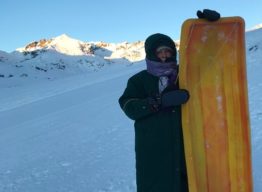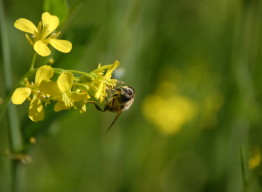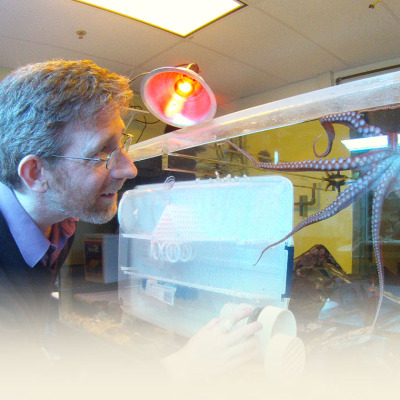Meadhdh Moriarty has a background in the aquatic sciences, but where her real passion lies is in mathematics. Moriarty (her first name pronounced “Maeve”) holds a Bachelor of Science in Marine…
MS Environmental Science
Meet Dee Barker, APU’s New Assistant Professor of Environmental Science
Dr. Dee Barker is joining APU as Visiting Assistant Professor of Environmental Science. Dee has her graduate degrees in chemistry, with specializations in chemical education and biophysical chemistry, and…
Environmental Ethics in Alaska
“Environmental ethics” may sound like a chance to eat chia seeds while wearing Birkenstocks, talking about your favorite tree (there certainly is a bit of hippy tree hugger in the…
Honors Assembly Shines Light on Exemplary Students, Staff, Faculty
With the school year winding down, Alaska Pacific University took time last week to recognize it’s exemplary students, staff, and faculty members during the Annual Honors Assembly. Here are the…
Program Spotlight: An Affordable Psychology Degree
Alaska Pacific University’s Counseling Psychology degree program has been identified in recent rankings, both this academic year and last year. Best Masters in Psychology has recognized APU as offering one…
Winter Bees
The Spring Creek Farm on APU’s Kellogg Campus is doing some great work towards local, sustainable agriculture. They collaborate with Alaskan beekeeper Ian Williams. The bees benefit from nectar from…
University teams with tribe-based council to gather watershed data
Efforts to gain knowledge about the Kuskowkim River watershed is the object of a canoe trip that will take team leader Martin Leonard, ’02, from the foothills of Mount McKinley…
Daily News readers gain insight into University’s long-term study of giant Pacific octopus
Anchorage Daily News readers learned about the University’s pioneering research on the little-understood giant Pacific octopus and whether its lineage includes a new species. Following her visit to the 1,000-gallon…
Law seminar highlights Cornick’s research on Cook Inlet belugas
Associate Professor Leslie Cornick was among invited presenters at a continuing-education seminar for lawyers focusing on the Endangered Species Act in Alaska. Cornick is a regionally ranked expert in Cook…
Interactions between Atlantic spotted (Stenella frontalis) and bottlenose (Tursiops truncatus) dolphins off Bimini, The Bahamas 2003 –2007
Interactions between Atlantic spotted (Stenella frontalis) and bottlenose (Tursiops truncatus) dolphins off Bimini, The Bahamas 2003 –2007. Published in Aquatic Mammals, Oct. 1, 2011 Kelly Melillo, MSES, 2007 Interspecific interactions…







